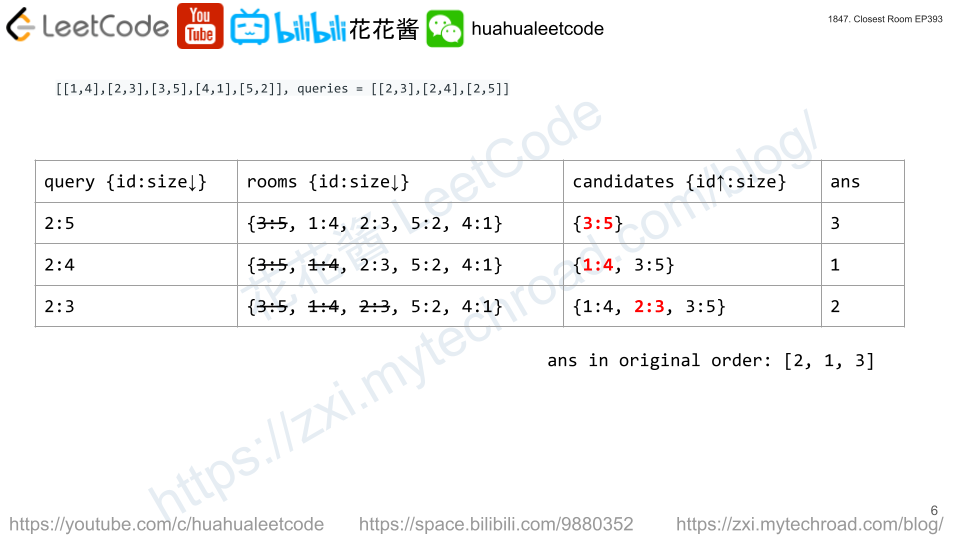You have n packages that you are trying to place in boxes, one package in each box. There are m suppliers that each produce boxes of different sizes (with infinite supply). A package can be placed in a box if the size of the package is less than or equal to the size of the box.
The package sizes are given as an integer array packages, where packages[i] is the size of the ith package. The suppliers are given as a 2D integer array boxes, where boxes[j] is an array of box sizes that the jth supplier produces.
You want to choose a single supplier and use boxes from them such that the total wasted space is minimized. For each package in a box, we define the space wasted to be size of the box - size of the package. The total wasted space is the sum of the space wasted in all the boxes.
- For example, if you have to fit packages with sizes
[2,3,5]and the supplier offers boxes of sizes[4,8], you can fit the packages of size-2and size-3into two boxes of size-4and the package with size-5into a box of size-8. This would result in a waste of(4-2) + (4-3) + (8-5) = 6.
Return the minimum total wasted space by choosing the box supplier optimally, or -1 if it is impossible to fit all the packages inside boxes. Since the answer may be large, return it modulo 109 + 7.
Example 1:
Input: packages = [2,3,5], boxes = [[4,8],[2,8]] Output: 6 Explanation: It is optimal to choose the first supplier, using two size-4 boxes and one size-8 box. The total waste is (4-2) + (4-3) + (8-5) = 6.
Example 2:
Input: packages = [2,3,5], boxes = [[1,4],[2,3],[3,4]] Output: -1 Explanation: There is no box that the package of size 5 can fit in.
Example 3:
Input: packages = [3,5,8,10,11,12], boxes = [[12],[11,9],[10,5,14]] Output: 9 Explanation: It is optimal to choose the third supplier, using two size-5 boxes, two size-10 boxes, and two size-14 boxes. The total waste is (5-3) + (5-5) + (10-8) + (10-10) + (14-11) + (14-12) = 9.
Constraints:
n == packages.lengthm == boxes.length1 <= n <= 1051 <= m <= 1051 <= packages[i] <= 1051 <= boxes[j].length <= 1051 <= boxes[j][k] <= 105sum(boxes[j].length) <= 105- The elements in
boxes[j]are distinct.
Solution: Greedy + Binary Search
- sort packages and boxes
- for each box find all (unpacked) packages that are smaller or equal to itself.
Time complexity: O(nlogn) + O(mlogm) + O(mlogn)
Space complexity: O(1)
C++
|
1 2 3 4 5 6 7 8 9 10 11 12 13 14 15 16 17 18 19 20 21 22 23 24 25 26 27 28 |
// Author: Huahua class Solution { public: int minWastedSpace(vector<int>& packages, vector<vector<int>>& boxes) { constexpr int kMod = 1e9 + 7; const int n = packages.size(); sort(begin(packages), end(packages)); const auto bit = begin(packages); const auto eit = end(packages); long sum = accumulate(bit, eit, 0L); long ans = LLONG_MAX; for (auto& box : boxes) { sort(begin(box), end(box)); int l = 0; long cur = 0; for (long b : box) { int r = upper_bound(bit + l, eit, b) - bit; cur += b * (r - l); if (r == n) { ans = min(ans, cur - sum); break; } l = r; } } return ans == LLONG_MAX ? -1 : ans % kMod; } }; |


